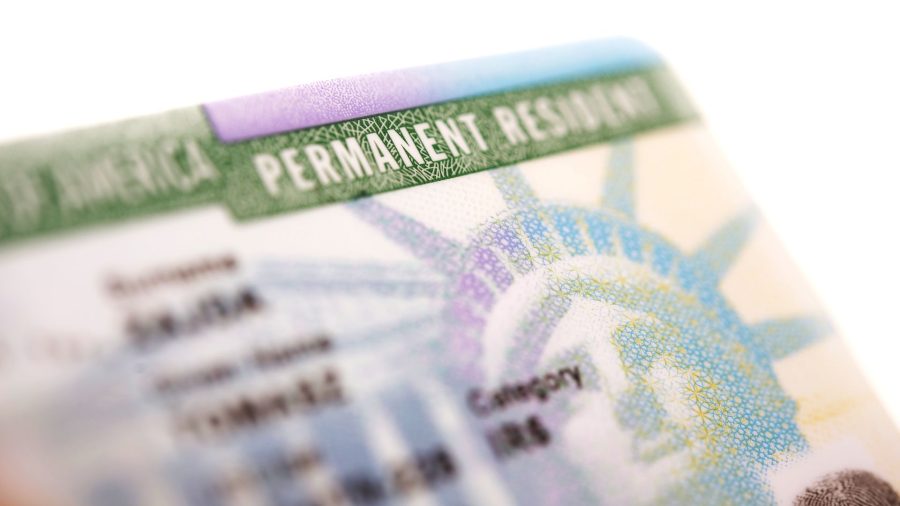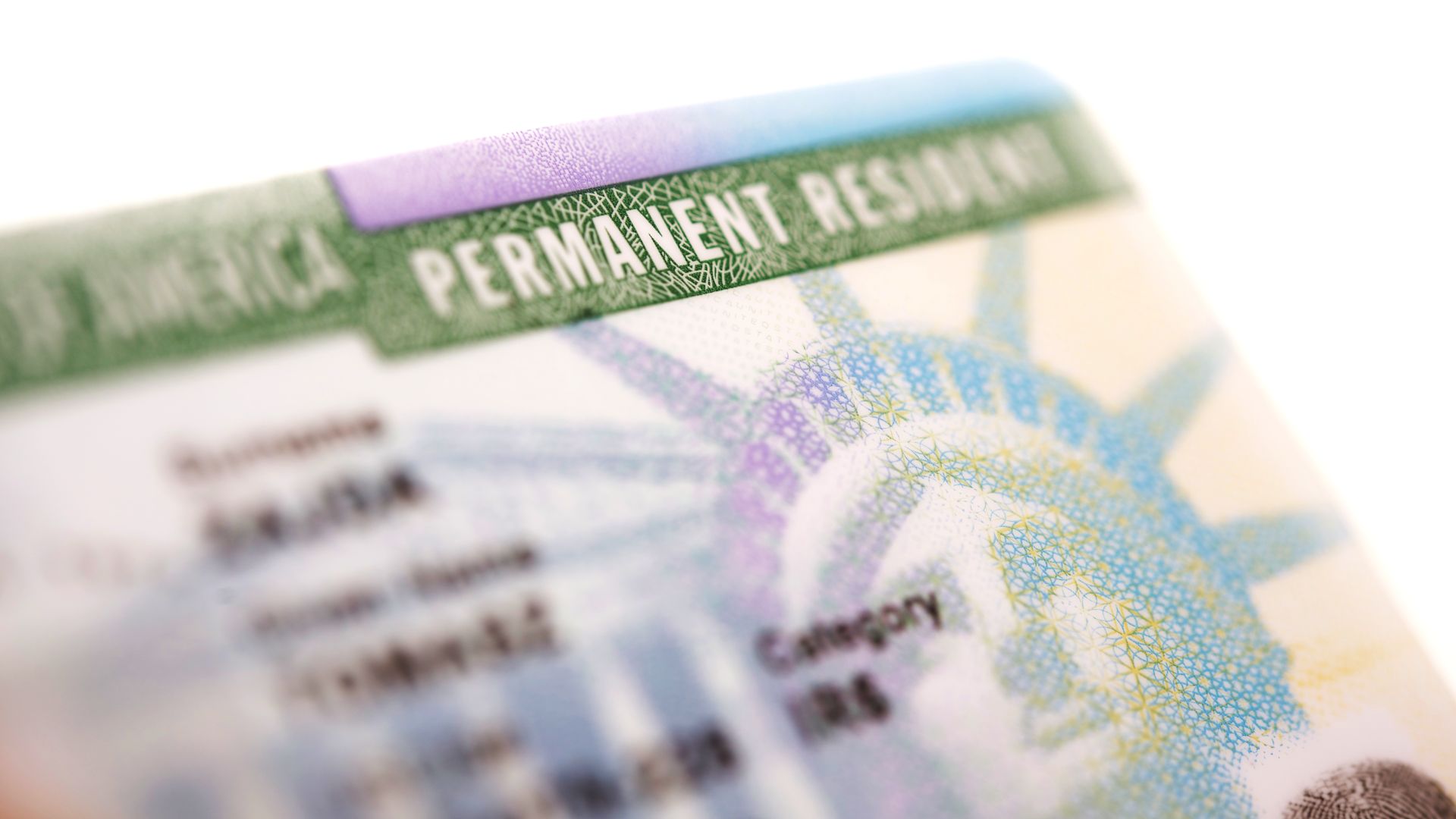A green card, formally known as a Permanent Resident Card, grants immigrants the right to live and work in the United States on a permanent basis. Holding a green card is a major milestone on the path to U.S. citizenship, offering various benefits and stability. However, it’s important to understand that having a green card is not a guarantee of permanent residence under all circumstances. There are several conditions under which a green card can be revoked, leading to the loss of residency and possible deportation. This blog will explore the various ways in which a green card can be revoked and the implications for permanent residents.
1. Committing Fraud or Misrepresentation During the Application Process
One of the most common reasons for a green card to be revoked is if the holder is found to have committed fraud or misrepresentation when applying for their green card. This includes falsifying documents, providing false information, or omitting significant facts during the application process.
Examples of Fraud or Misrepresentation
- Marriage Fraud: Marrying solely for the purpose of obtaining a green card can lead to severe consequences. If the U.S. Citizenship and Immigration Services (USCIS) discovers that a marriage was not genuine, they can revoke the green card.
- False Documents: Submitting counterfeit documents or using someone else’s identity during the application process is grounds for revocation.
- Omission of Relevant Facts: Failing to disclose important information, such as a prior criminal record or past immigration violations, can lead to severe penalties.
Consequences: If USCIS or Immigration and Customs Enforcement (ICE) finds evidence of fraud, the individual may be placed in removal proceedings and could face deportation.
2. Committing Certain Crimes
A green card can be revoked if the holder commits certain types of crimes. U.S. law distinguishes between different categories of crimes, with some being more serious in terms of their impact on immigration status.
Types of Crimes that Can Lead to Revocation
- Aggravated Felonies: This category includes crimes such as murder, drug trafficking, rape, and other offenses considered especially serious. Committing an aggravated felony can not only lead to the revocation of a green card but also result in deportation without the possibility of reentry.
- Crimes Involving Moral Turpitude (CIMT): These are crimes that indicate a breach of societal standards, such as fraud, theft, or assault. While a single CIMT might not be enough for revocation, multiple offenses or one committed within five years of obtaining a green card can be problematic.
- Drug-Related Offenses: Involvement in drug trafficking or possessing certain amounts of controlled substances can trigger deportation proceedings.
Consequences: Convictions can lead to removal from the U.S., and legal defenses may not always suffice in preventing revocation if the crime is serious.
3. Failing to Maintain Permanent Residence
Holding a green card requires maintaining the U.S. as your primary residence. If an individual leaves the country for an extended period without appropriate documentation, it can be seen as abandoning their permanent resident status.
Key Points on Residence Abandonment
- Lengthy Absences: Staying outside the U.S. for more than a year without obtaining a reentry permit or returning resident visa can raise red flags. While a reentry permit allows for up to two years of absence, it must be obtained before leaving.
- Intent to Maintain Residency: Even absences shorter than a year can be problematic if USCIS believes the individual does not intend to maintain their U.S. residence. Evidence such as foreign employment, property, or ties to another country can indicate abandonment.
Tip: To show continuous residence, green card holders should maintain financial, social, and familial ties to the U.S., such as owning property, filing taxes, or keeping a U.S. driver’s license.
4. Failure to Notify USCIS of a Change of Address
U.S. law requires green card holders to notify USCIS of any change of address within 10 days of moving. While failing to comply with this requirement may seem minor, it can have significant consequences, especially if there is an ongoing investigation or legal matter.
How to Notify USCIS
- Online Form AR-11: The most efficient way to update your address is by completing the online AR-11 form on the USCIS website.
- Mail Notification: Alternatively, individuals can submit a paper form by mail, but it is generally slower.
Consequences: While an address change failure alone might not immediately lead to revocation, it can compound other issues or be used as evidence of negligence or abandonment of residency.
5. Security-Related Reasons
Green card holders who engage in activities deemed threatening to U.S. national security can lose their status. This includes involvement in terrorism, espionage, or other activities that undermine the safety of the United States.
Examples of Security Violations
- Membership in Terrorist Organizations: Being part of or assisting a terrorist group can lead to immediate revocation and deportation.
- Espionage or Treason: Activities related to spying, intelligence gathering for foreign governments, or attempts to overthrow the government are considered severe violations.
Consequences: In addition to deportation, individuals accused of such activities may face criminal prosecution and significant legal penalties.
6. Engaging in Immigration Fraud After Obtaining a Green Card
Committing fraud or illegal activities after obtaining a green card can still lead to its revocation. This includes aiding others in fraudulently obtaining visas or green cards, identity fraud, or participating in fraudulent schemes.
Examples
- Helping Others Commit Immigration Fraud: Acting as a facilitator in schemes that help others obtain immigration benefits unlawfully.
- Identity Theft: Using or assisting in the use of stolen identities to gain immigration benefits.
Consequences: Offenders may face deportation and a lifetime ban on reentering the U.S.
7. Violating the Terms of Conditional Green Cards
Conditional green cards are typically issued to individuals who have been married for less than two years at the time of approval or for certain investor immigrants. Holders must meet specific conditions to remove these limitations and gain a standard permanent resident card.
Common Violations
- Failure to File Form I-751 or I-829: Not filing the required petition to remove conditions within the specified timeframe can lead to automatic expiration of status.
- Divorce Before the Removal of Conditions: While divorce does not automatically lead to the loss of a green card, it complicates the removal process. Holders must prove that the marriage was bona fide and not solely for immigration purposes.
Consequences: If conditions are not met, the individual may lose their green card status and be subject to removal proceedings.
8. Becoming Inadmissible Due to Health Reasons
Certain health-related issues, particularly those that pose a public health risk, can lead to inadmissibility and potentially result in revocation. Conditions such as untreated infectious diseases or mental health disorders associated with harmful behavior may be grounds for deportation.
Tip: Green card holders should undergo regular health checkups and maintain compliance with public health requirements.
Final Thoughts
Green card holders should be aware of the conditions under which their status can be revoked to avoid unintended consequences. Committing crimes, committing fraud during the application, failing to maintain continuous residence, and violating other terms can result in severe penalties, including deportation. It is crucial for permanent residents to stay informed, comply with all U.S. laws, and seek legal assistance if facing potential revocation or removal proceedings.
Understanding and adhering to the guidelines governing permanent residency ensures that green card holders can fully enjoy their status and continue their journey toward U.S. citizenship.








